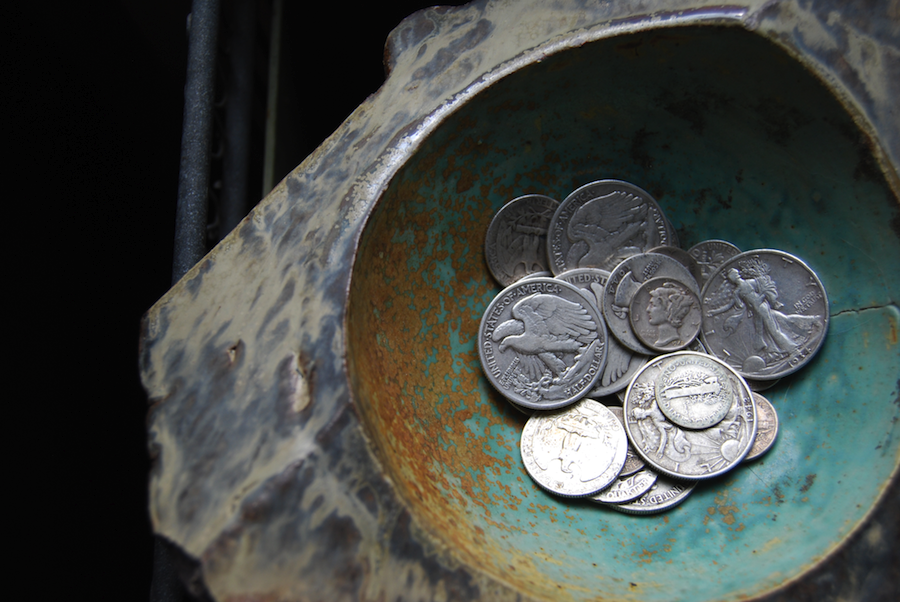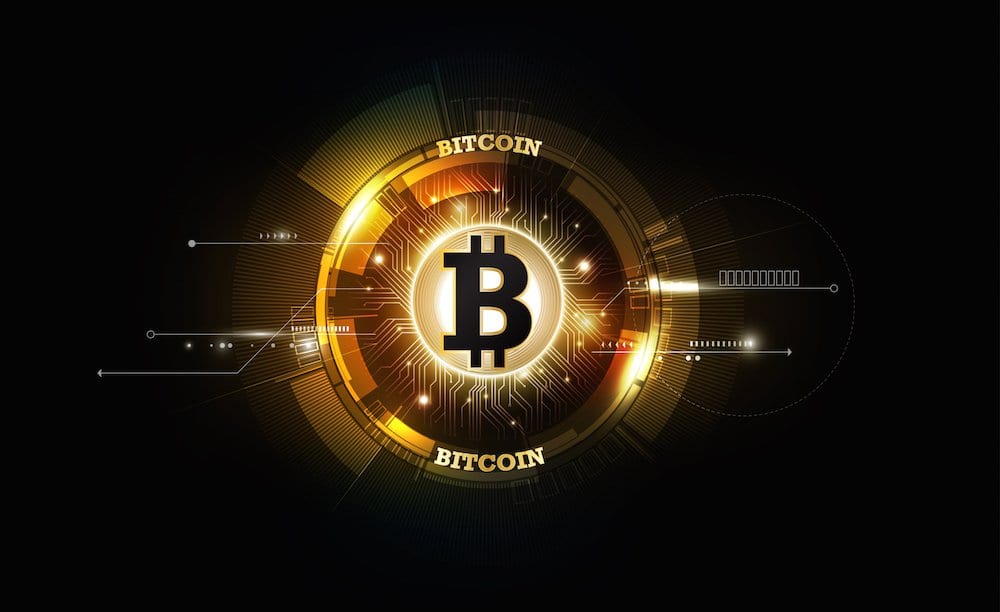Critics of Bitcoin often argue that Bitcoin’s value is purely speculative and not based on anything “real”, but just expectations or trust that the price will be higher in the future. While the arguments may hold some water on the current market, they are also way off the mark in the long term.
Keeping in mind that although related, value and price are two different animals, it’s important to recognize that the one thing truly differentiating Bitcoin from traditional currencies is the trustlessness it offers.
Contrary to the critics’ arguments, with Bitcoin you don’t need to trust anyone in particular, whereas with fiat currencies you just need to keep trusting the central bank and the government not to mess up with your money.
Ultimately it’s this trustlessness that provides value to Bitcoin and that value will eventually be reflected on the price as well. And I believe that’s currently a great untapped potential.
A brief history of money
If you don’t mind going back to the basics for a while, then let’s talk a bit about money. As you know, money is defined as a commonly accepted medium of exchange. It means that you don’t generally accept money for the sake of receiving money per se, but for the service it renders you as a means to purchase other products and services.
Initially, common everyday items were used as money. Durability and wide acceptability were key criteria back then. Salt, butter and nails are some historic examples. Here in Finland, even the Finnish word for money, raha, originally stood for squirrel skins, which were used as money at some point in history.
Ultimately in all advanced cultures metal coins prevailed as the most successful form of money. The gold standard of money was, of course, gold. Some of the modern day and only recently abandoned currency names come from this period, for example Finnish markka or German Mark being basically measures of weight for gold and silver.
While even the coins made of precious metals had their problems (and more on those later), next came the previous major paradigm shift in money technology, although some may argue it was a downgrade instead of an upgrade. I’m talking about fiat money, of course. Paper money was an important intermediate step too, but originally the paper receipts stood for actual gold and silver in bank vaults.
Fiat (meaning a government decree) is what decoupled money from any intrinsic value the various media of exchange had held previously. Until then, all forms of money had some other uses as well. For example, you could always melt your silver coins and use the silver as conducting material instead.
While some people might have seen that as an improvement, having no more materials with actual productive uses collecting lint in pockets, this also meant that money was no longer tied to real world in any meaningful way. And that’s when the trouble started.
 In the past all forms of money had some other uses as well. Silver coins could be melted for other use if needed.
In the past all forms of money had some other uses as well. Silver coins could be melted for other use if needed.
Got some trust issues?
Any currency requires some amount of trust, specifically in that your coins, bills, nuggets or skins will be accepted by others in the future as well. If a currency stops being widely accepted, the options are limited.
For currencies with some intrinsic value the situation was a bit better. After all, a bunch of no longer monetary squirrel skins probably made you a pretty nice fur coat or at least something leathery. With fiat currencies it’s somewhat worse: those Zimbabwean dollars or Weimar marks became really low quality toiler paper in the end. And if you appreciate your behind, you probably don’t want to hold any South African rand in a year or two after their minister of finance announed the plans to print billions to make the poor rich.
If Bitcoin loses its appeal, well, there’s even less to go around. However, Bitcoin is not alone in this sense: using any currency requires trust in its future acceptability. Of course this is already implied when something begins to be accepted widely enough that it can be considered as money.
But that isn’t what we mean by trustlessness. Instead, it means that you don’t have to trust any other party to maintain – and specifically not to destroy – the value of the currency.
Illegal counterfeiting is harshly punished, because it undermines the value of a currency in two different ways. Firstly, counterfeit money of adequate quality and quantity increases the amount of money in circulation, being thus inflation and pushing prices upwards. Secondly, it deteriorates the public trust in the currency.
And then there’s legal counterfeiting also known as inflation targeting or just increasing the supply of money or some other fashionable term for whatever the central bank does. In theory a fiat currency could be eternal, free of inflation and then hyperinflation, but still you are required to trust that the next batch of politicians and central bankers don’t screw up your money. Which they inevitably will. In fact, even the most stable of fiat currencies have lost most of their value over the last century.
Historically gold has been the safe haven for a few millenia. When other currencies have failed, people have flocked back to gold. But even gold has been susceptible to monetary corruption by the ruling elites. With emperors, kings, presidents and even the most representative of rulers there always seems to be another war around the corner, be it an actual war or a war on poverty or whatnot, and wars are damn costly.
Those rulers who haven’t had the luxury of the printing press have eventually started diluting or cutting or thinning their money. If you make all of your gold coins one percent lighter, you can mint one new coin for every hundred coins you run through. Maybe mix a tiny amount of copper in each and you can double that to two coins. Nobody is likely to notice that you have messed up with their money, well, until they do. And then you’ll likely lose your head.
The need to trust others to not be either illegal or legal counterfeiters is completely eliminated with Bitcoin. It’s simply unfakeable. There will never be more than 21 million Bitcoin mined and each and every transaction is final forever, period. Unless a majority of the electricity thrown at Bitcoin thinks otherwise, that is.

With bitcoin you don’t need to trust anyone, only technology.
Trust in Proof of Work
Bitcoin is by far the most secure cryptocurrency because it’s immutability is enforced by continuously growing amount of computing power. Altering the blockchain or other properties of Bitcoin would take more than half of the combined computing power in the network. If you are a new actor determined to subvert Bitcoin and everyone is against you, that means you have to throw in at least the same amount of computing power and electricity usage higher than in many countries to achieve the half – and that’s assuming that others won’t respond in kind. The requirement is impractical even today.
This is why I don’t consider other cryptocurrencies or altcoins here. They may have their use cases, but not even one comes close to Bitcoin in global currency potential, considering all the aspects including especially the trust issues. Many of the altcoins are actually way worse than even fiat currencies in this regard, not asking you to trust a bunch of elected officials in your geographical area but a group of random dudes wherever.
I think I need to add a quick word about decentralization here. While decentralization is closely related to trustlessness and the latter certainly cannot be achieved without the former, they are not the same and everything decentralized isn’t necessarily trustless too.
Value of trustlessness
This brief introduction brings us to the actual topic – the value of trustlessness. In case of bitcoin, trustlessness is based on the following four properties. Bitcoin is permissionless, so you don’t need a bank or government or any authority to approve your transaction. It is private with the right precautions possible for anyone to make. It has predictable supply, so it’s secure from government inflation. It has provable cryptographic security, thanks to which ownership and transactions are mathematically verifiable.
If that’s really what differentiates Bitcoin from other currencies, then that is also what is the value of Bitcoin in the long term. I mean when entire cities and entire countries accept Bitcoin as money, when prices are shown first in Bitcoin, then in some other currency, and it’s the price in other currency that fluctuates.
The value of trustlessness for Bitcoin is that it’s the thing which allows Bitcoin to reach that level. With the widespread adoption of Bitcoin we can eliminate the need to trust in politicians and central bankers from our monetary transactions. And while central bankers do enjoy a commonly shared image of being trustworthy, and they generally can be trusted to do their job (which is to only very slowly destroy the value of money), the politicians who nominate the central bankers are seldom thought of as trustworthy.
Trustlessness of Bitcoin will eventually even allow it to supplant gold, in spite of not having any intrinsic value. It will also likely enable monetary innovations that we cannot even imagine yet. Additionally, the global savings incurred from removing outdated institutions can be tremendous.
Adding all of that up, with the coming implementation of Lightning Networks, I believe the valuation of Bitcoin has a large upside. Maybe even so large that a single satoshi will be too much for a cup of coffee. The role of the most useful altcoins may very well be to be the silver to Bitcoin’s gold.
The price fluctuations we see today are just the market’s efforts to find the right price. It will take time to get there, especially as the value of trustlessness will really come into play only after the critical mass has been achieved and the old institutions are in the process of being replaced. Afterwards the price is likely to be stable-ish with slight deflation due to technological progress and population growth.
